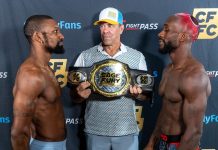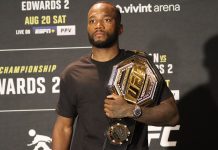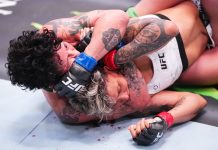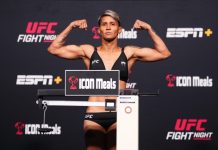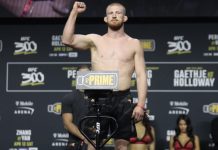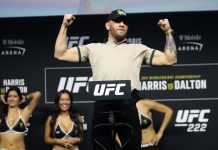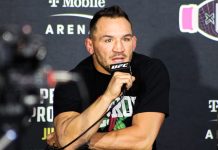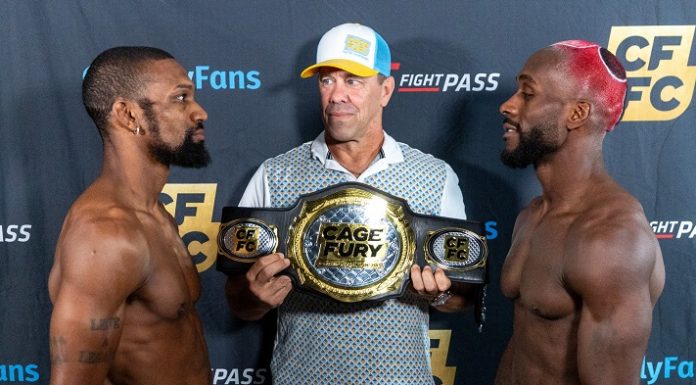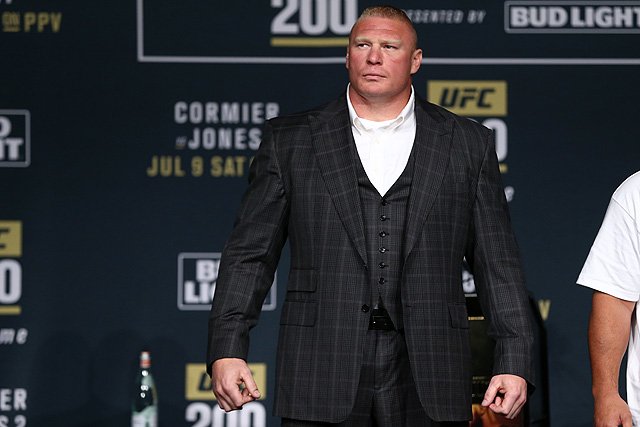
With UFC Pay-Per-View events now exclusive to ESPN+ in the U.S., the casual buy may be a thing of the past — which could take the idea of superstars in the UFC with it.
Brock Lesnar has retired. So too has Georges St. Pierre. Conor McGregor wants an ownership stake. Ronda Rousey is in the rear view mirror. Anderson Silva is getting long in the tooth.
That leaves Jon Jones as perhaps the only bonafide UFC superstar in 2019. Daniel Cormier might arguably be the other name in contention; Israel Adesanya has a chance to one day become a major draw in the company. But for the time being, Jones and perhaps D.C. are the names the promotion needs to rely on when they stack big cards.
Luckily for the UFC, Jones has decided to fight as frequently as possible since returning from yet another doping-related suspension. Cormier has opted to forgo retirement, giving the organization another card or two which they can build on his shoulders.
That does little when looking at the reality of the PPV landscape today. That reality changed dramatically when the UFC shifted its PPV operations to ESPN and ESPN+. Originally, the UFC’s deal with ESPN was just a broadcast deal. Events would air on ESPN much like they did on the FOX network across the previous seven years, and Fight Nights would air on ESPN+, the network’s streaming service, taking the place of Fox Sports 1, Fox Sports 2, Fox Sports Whatever You Could Find On Your Dial.
Then, just a few months into the arrangement, the UFC opted to shift all of its PPV operations in the US to the ESPN+ platform. The benefit of this was having all the content in one place, with one provider, at least for US fans. You could watch early prelims on ESPN+, televised prelims on ESPN, then go back to ESPN+ for the PPV card. If you were familiar with the platform, this seemed hassle free. On top of that, cutting out the myriad of PPV providers allowed the promotion to streamline its promotional and marketing efforts. Imagine this: in the past, you had multiple PPV providers across multiple cable and satellite platforms, plus online offerings. Offering something as simple as 5$ off an event became more complex than one might imagine as a result. Different providers had different deals on the back end, creating a logistical headache.
With all PPVs stateside now offered by a single provider/point of purchase, discounted offerings and bundled deals are much easier to facilitate. Already, we’ve seen the promotion offering what amounts to a free PPV when signing up for ESPN+. All great for fans, right? At least if they have ESPN+ anyway.
Moving to ESPN+ made a certain amount of sense, but it also eliminated — or if not eliminated, reduced the likelihood of — the casual buy. Casual buys are huge in combat sports. Look no further than the top boxing draws. Back in the day, it was Mike Tyson. “Fans” who couldn’t name five other boxers would order an event when ‘Iron’ Mike was fighting.
Arguably, when Conor McGregor fought Floyd Mayweather, casual buys made up a hefty chunk of the 4.3 million PPVs ordered. In the UFC, McGregor has topped the two million buy mark. That makes him a draw outside the UFC’s hardcore fan base. And the biggest superstar the company has ever known. He’s the type of fighter who draws in viewers who never watch another UFC or combat sports event through the course of the year. He’s the guy people who barely follow the sport will tune in for.
McGregor’s outspoken, he’s a personality, he’s done things outside of the sport, he’s controversial — all of those things add up to a huge boost in PPV sales volume when a Conor McGregor card goes down.
Now that’s all well and good when Joe Sixpack is flipping through his cable channels, sees a McGregor fight coming up, and goes ‘hey I’m going to have the guys over, let’s order this one.’ But what happens when they can no longer order a fight on demand with the click of a button?
Another timely example is Brock Lesnar. Lesnar retired recently, at least according to Dana White, as we haven’t really heard anything from Brock himself. But at UFC Ottawa this past weekend, talk back stage absolutely had the reason for Lesnar retiring as the numbers game. Fighting for Brock Lesnar, pro wrestling for Brock Lesnar, anything Brock Lesnar does is about money. He may come off as a neanderthal in terms of his persona, but ultimately, he is a very smart businessman.
Lesnar has traditionally played promotions, specifically the WWE and UFC, off each other when it was time to go to the bargaining table. And it’s hard to fault him for that. Especially in terms of the UFC’s interest, Brock Lesnar came with a built in fanbase, carried over from the WWE. And those, in many cases, represented casual fans. Casual buys. They might not watch any other UFC event, but they would watch when Lesnar was fighting. They would buy Brock Lesnar PPVs. It helped that for a brief time, Brock was a wrecking machine in the UFC, and reached the absolute pinnacle of the sport, winning the heavyweight title and defending it twice.
But what really pushed Brock to the one million buy mark on PPV was the casual fans, not his status as champ.
And make no mistake, Lesnar was worth the money to the company at that point. Even as recently as 2016. That year, UFC 200 was supposed to be headlined by Jon Jones vs. Daniel Cormier, but Jones failed a drug test and was pulled from the card. The women’s bantamweight title fight between Miesha Tate and Amanda Nunes was moved to the main event slot. While Tate is a wonderful ambassador for the sport, UFC 200 was the only PPV she headlined for the UFC (her fights against Ronda Rousey and Holly Holm were both co-main events). Nunes was even a less of a draw leading into UFC 200. It was Lesnar’s presence on that card that saved the day. A superstar from years past.
Flash forward to 2019, however. When it came time to go back to the bargaining table, one of the main benefits for a fighter like Brock Lesnar was PPV dollars. The bonus money fighters in the main event often get based on how well a PPV performs. For a fighter like Lesnar, who received a disclosed salary of $2.5 million at UFC 200, PPV dollars are huge.
Only when it came to Lesnar vs. Cormier, a fight that almost seemed to be a done deal after Lesnar showed up in the cage and confronted D.C. last year, suddenly, the money wasn’t there. The PPV dollars were gone. Why? Well, with ESPN+ being the exclusive home of UFC PPV events, the casual buyer has been cut out.
Lesnar, knowing that PPV dollars would be low, wanted more money up front. The UFC wasn’t ready to match his offer. A guy who sold a million buys for the UFC in the past, repeatedly, suddenly wasn’t worth the money.

